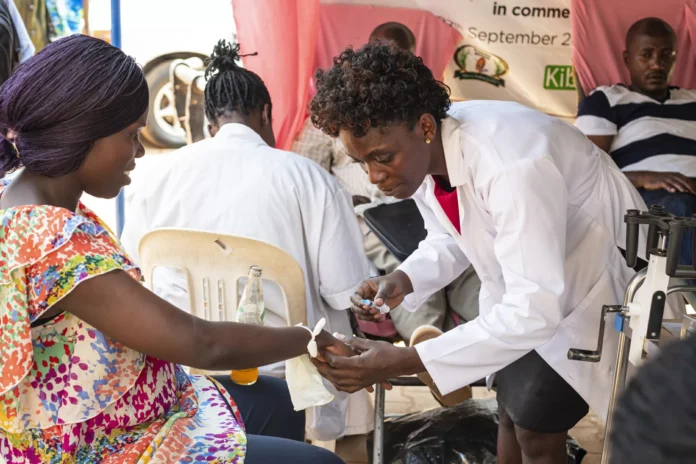The World Bank is an international organization that aims to reduce poverty and promote sustainable development around the world. Through its various programs and initiatives, the World Bank has been able to make a significant impact on the lives of millions of people. However, recent data from the World Bank has revealed that the way these programs are organized can have a significant influence on political conflict in developing countries. This data provides valuable insights into how aid delivery can be improved, ultimately leading to a better and more effective use of resources.
In a recent report, the World Bank examined the relationship between aid delivery and political conflict in developing countries. The findings were eye-opening, to say the least. The data showed that the organization of aid programs can have a significant impact on political conflict in the recipient countries. This is a crucial discovery, especially since political conflict can hinder the successful implementation of aid programs and ultimately affect the lives of those in need.
One of the key factors that the World Bank data highlighted was the importance of involving local communities in the planning and implementation of aid programs. In many cases, aid programs are designed and implemented by external actors without proper consultation with the local communities. This can lead to a disconnect between the program and the needs of the community, ultimately causing resentment and conflict. The data showed that involving local communities in decision-making processes not only leads to more effective aid delivery, but it also helps to build trust and cooperation between communities and aid organizations.
Another crucial aspect highlighted by the data was the need for a holistic approach to aid delivery. Often, aid programs focus on specific issues such as healthcare, education or infrastructure. While these are undoubtedly essential areas, the data showed that a narrow focus on one issue can lead to conflict and resentment within the community. For instance, if an aid program only focuses on providing education, it may lead to tensions between those who have access to education and those who do not. Therefore, a more comprehensive approach that addresses multiple issues and involves all members of the community is necessary to avoid potential conflict.
The World Bank data also showed the importance of transparency and accountability in aid delivery. In many cases, aid funds may be misused or mismanaged, leading to frustration and anger within the community. This can further exacerbate existing political conflicts. However, the data revealed that when aid organizations are transparent and accountable in their actions, it builds trust and credibility with the community, ultimately leading to a more peaceful and cooperative environment.
Furthermore, the data highlighted the need for long-term planning and sustainable development in aid programs. Many aid programs focus on short-term solutions, which may provide immediate relief but do not address the root causes of poverty and conflict. The World Bank data showed that investing in sustainable development initiatives that promote economic growth and empower communities can lead to long-term stability and reduce the risk of political conflict.
The insights provided by the World Bank data are crucial for aid organizations, policymakers, and governments around the world. By understanding how the organization of aid programs can influence political conflict, we can take steps to improve aid delivery and ensure that resources are used effectively. This will not only lead to a more peaceful and stable environment but also enable aid programs to have a more significant impact on the lives of those in need.
The World Bank has already begun to implement these findings in their aid programs. For instance, the organization has increased its focus on involving local communities in the decision-making process and promoting transparency and accountability. These efforts have already shown promising results, with a decrease in political conflict in some of the recipient countries.
In conclusion, the World Bank data provides valuable insights into how the organization of aid programs can influence political conflict. By involving local communities, taking a holistic approach, promoting transparency and accountability, and focusing on sustainable development, aid organizations can ensure more effective aid delivery and contribute to a more peaceful world. The World Bank’s commitment to utilizing this data to improve aid delivery is commendable, and we hope to see more organizations follow suit in the future.

